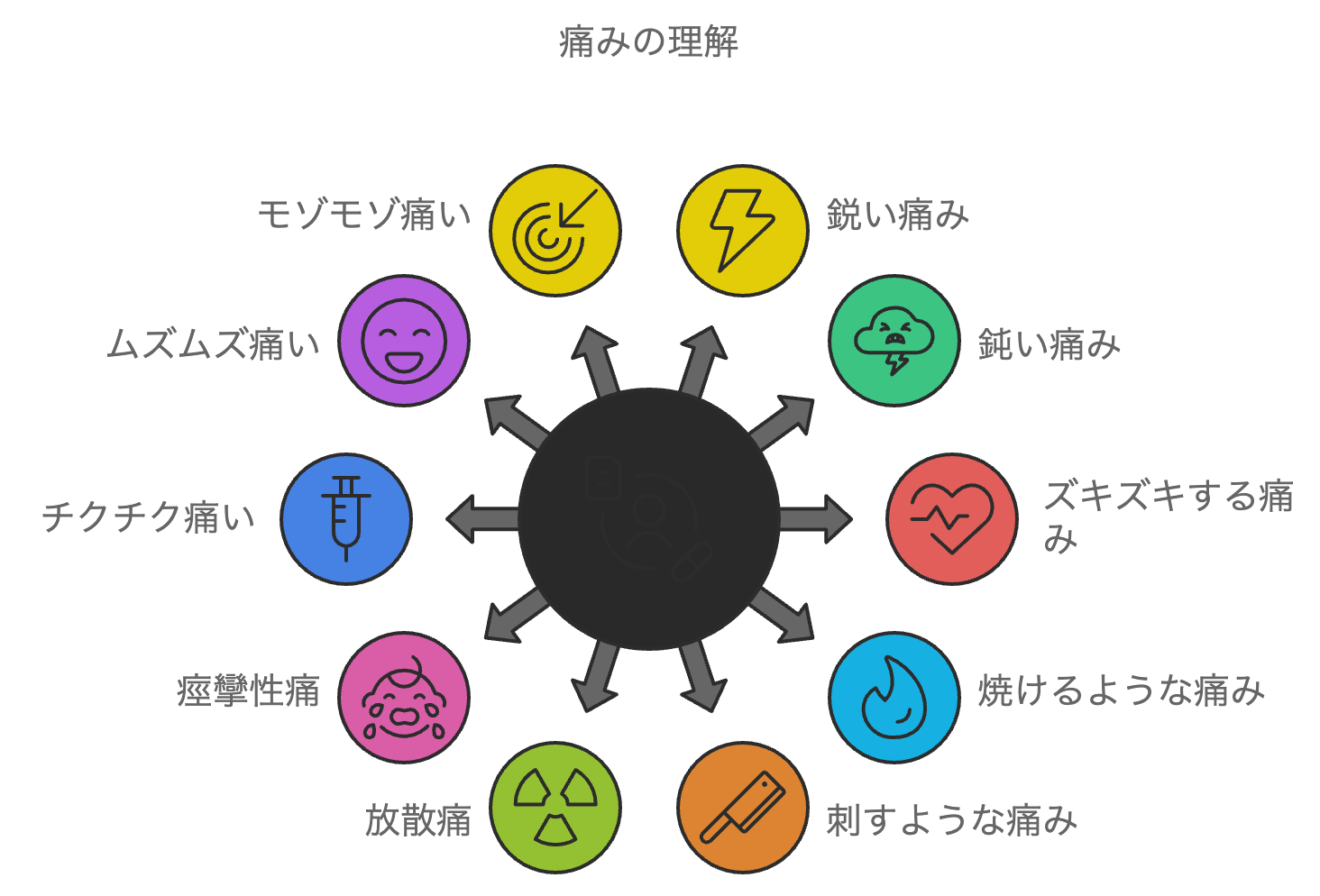腎臓内科における腎性貧血に関する会話例と英語フレーズ
**腎性貧血(Renal Anemia)**は、腎臓が正常に働かなくなることで、エリスロポエチン(Erythropoietin, EPO)の生成が減少し、赤血球の生産が不十分になることで引き起こされる貧血です。慢性腎臓病や腎不全の患者に多く見られ、体内の酸素運搬能力が低下し、疲労感や息切れなどの症状が現れます。
この記事では、腎性貧血に関する診察時の会話例と、それに関連する英語表現を紹介します。
患者の設定
- 名前: Haruto Suzuki (60歳、男性)
- 職業: 退職者
- 主な症状: 疲労感、息切れ、めまい、顔色が悪い。
- 既往歴: 慢性腎臓病(CKD)
- 生活習慣: 食事制限と定期的な通院治療を受けている。
1. 初診での問診と症状の確認
会話例: 腎性貧血の疑いでの問診
Doctor: “Good morning, Mr. Suzuki. I understand you’ve been feeling tired and have been experiencing shortness of breath. Have you noticed any other symptoms, like dizziness or pale skin?”
日本語訳: 「おはようございます、鈴木さん。疲労感や息切れを感じていると伺いましたが、めまいや顔色が悪いなど、他の症状に気づきましたか?」
Patient: “Yes, I’ve been feeling really tired lately, and I get dizzy when I stand up quickly. My wife says my face looks pale.”
日本語訳: 「はい、最近とても疲れやすく、急に立ち上がるとめまいがします。妻からは、顔色が悪いと言われています。」
2. 疾患の説明とリスク
会話例: 腎性貧血の説明
Doctor: “It’s possible that you have renal anemia, which is a type of anemia caused by your kidneys not producing enough erythropoietin, the hormone that stimulates red blood cell production. Since you have chronic kidney disease, it’s not uncommon for anemia to develop as a complication.”
日本語訳: 「腎性貧血の可能性があります。これは、腎臓がエリスロポエチンという赤血球の生成を促すホルモンを十分に生産できないことで起こる貧血です。慢性腎臓病があるので、合併症として貧血が発症することは珍しくありません。」
Patient: “Is it serious? Can it be treated?”
日本語訳: 「それは深刻ですか?治療できますか?」
Doctor: “Renal anemia can make you feel very tired, but it can be treated. We can give you erythropoietin injections or iron supplements to help your body produce more red blood cells. It’s important to manage this to improve your quality of life.”
日本語訳: 「腎性貧血は疲れやすくなりますが、治療が可能です。エリスロポエチンの注射や鉄分補給で赤血球の生成を促すことができます。これを管理して、生活の質を向上させることが重要です。」
3. 検査と診断
会話例: 血液検査と診断の説明
Doctor: “To confirm the diagnosis, we’ll need to do a blood test to measure your hemoglobin and iron levels. This will help us understand how severe the anemia is and whether you need additional treatment, like iron supplements.”
日本語訳: 「診断を確認するために、血液検査を行い、ヘモグロビンや鉄分のレベルを測定します。これにより、貧血の程度がわかり、鉄分補給などの追加治療が必要かどうかを判断します。」
Patient: “Will the blood test show how low my red blood cell count is?”
日本語訳: 「血液検査で赤血球の数がどれくらい低いかがわかりますか?」
Doctor: “Yes, the test will show your hemoglobin levels, which indicates how many red blood cells are in your blood. If your levels are low, we’ll start treatment to increase your red blood cell count.”
日本語訳: 「はい、血液検査でヘモグロビンのレベルがわかり、血中の赤血球がどれくらいあるかを示します。レベルが低ければ、赤血球の数を増やすための治療を始めます。」
4. 診断結果と治療法の説明
会話例: 腎性貧血の治療法の説明
Doctor: “If the tests confirm renal anemia, we’ll begin treatment to help increase your red blood cell count. This typically involves erythropoietin injections to stimulate your bone marrow to produce more red blood cells. In some cases, we may also recommend iron supplements if your iron levels are low.”
日本語訳: 「検査で腎性貧血が確認された場合、赤血球の数を増やすための治療を始めます。通常は、エリスロポエチンの注射で骨髄を刺激し、赤血球の生成を促します。場合によっては、鉄分のレベルが低ければ、鉄分補給も推奨します。」
Patient: “How often will I need the injections?”
日本語訳: 「注射はどのくらいの頻度で受ける必要がありますか?」
Doctor: “Most patients receive erythropoietin injections every few weeks, but it depends on how well your body responds to the treatment. We’ll monitor your red blood cell count regularly and adjust the treatment as needed.”
日本語訳: 「多くの患者さんは数週間ごとにエリスロポエチンの注射を受けますが、治療に対する体の反応によります。赤血球の数を定期的に監視し、必要に応じて治療を調整します。」
5. 生活習慣とフォローアップ
会話例: 腎性貧血の管理と生活習慣のアドバイス
Doctor: “In addition to the injections, it’s important to eat a balanced diet rich in iron and vitamin B12 to support red blood cell production. Foods like leafy greens, beans, and lean meat can help. We’ll also recommend regular follow-up visits to monitor your anemia.”
日本語訳: 「注射に加えて、鉄分やビタミンB12を多く含むバランスの取れた食事を摂ることが大切です。葉物野菜や豆類、赤身の肉などが役立ちます。また、貧血を定期的にフォローアップするための通院も推奨します。」
Patient: “I’ve been trying to eat more vegetables, but it’s hard to get enough iron. Are there supplements I can take?”
日本語訳: 「野菜をもっと摂るようにしているのですが、十分な鉄分を摂るのは難しいです。サプリメントはありますか?」
Doctor: “Yes, we can prescribe iron supplements if needed, but it’s always best to get as much iron from food as possible. We’ll check your iron levels regularly to ensure you’re getting enough.”
日本語訳: 「はい、必要に応じて鉄分のサプリメントを処方できますが、できる限り食事から鉄分を摂ることが理想です。定期的に鉄分のレベルを確認し、十分な鉄分を摂れているかどうかを確認します。」
学習ポイント
- 症状の確認: 腎性貧血に関連する症状を確認するためのフレーズを学びます。例: “Have you noticed any symptoms like fatigue, shortness of breath, or dizziness?“(疲労感、息切れ、めまいなどの症状に気づきましたか?)
- 検査の説明: 腎性貧血の診断に必要な検査を説明するフレーズを学びます。例: “We’ll perform a blood test to check your hemoglobin and iron levels to assess the severity of your anemia.“(ヘモグロビンと鉄分のレベルを確認するために、血液検査を行います。)
- 治療法の説明: 腎性貧血の治療法を説明するフレーズを学びます。例: “We’ll start erythropoietin injections to stimulate your body to produce more red blood cells.“(赤血球の生成を促すために、エリスロポエチンの注射を始めます。)
- 生活習慣のアドバイス: 赤血球の生成をサポートするための食事や生活習慣についての表現を学びます。例: “Eating foods rich in iron, like leafy greens and beans, can help support red blood cell production.“(葉物野菜や豆類など、鉄分を豊富に含む食べ物が赤血球の生成を助けます。)
関連キーワード: 腎性貧血, エリスロポエチン, ヘモグロビン, 鉄分, 貧血, 慢性腎臓病, 英語会話例, 外国人対応


